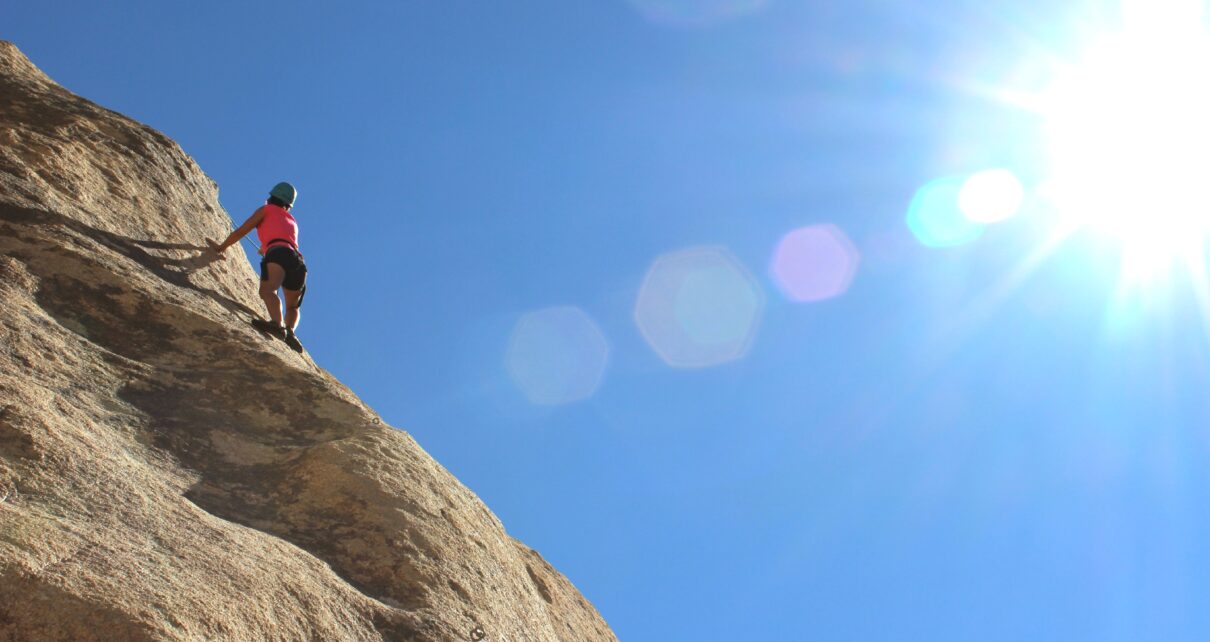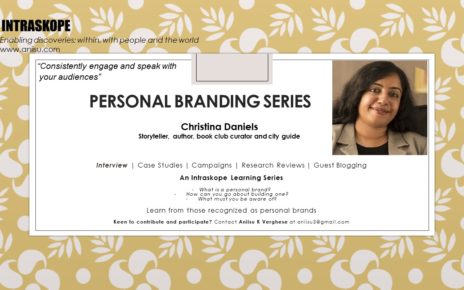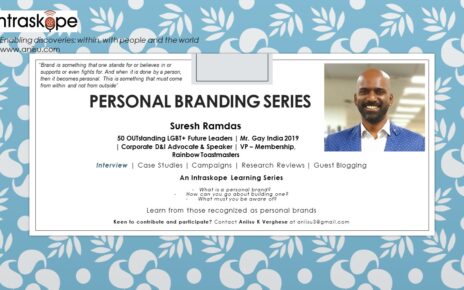Dave Carroll is known as ‘one of the nicest guys in the business’ and when I asked him how he got the moniker, his response was he treats people like the way he wants to be treated – with respect.
Based in Halifax, Nova Scotia, Canada, Dave has over twenty five years’ experience in the music business. When he faced a difficult customer service issue with United Airlines in 2009, he used his ability as a master storyteller to share his issue with the world. The resulting YouTube music video called “United Breaks Guitars” became an instant viral hit and today over 150 million people have been introduced to his story. United Breaks Guitars has been called “one of the most important [videos] in Google’s history,” and became a metaphor for change and innovation.
“I’ve been called a social media innovator in 2009. The song I released in a video in response to a bad customer service experience with United Airlines ended up becoming very popular very quickly and became one of the more popular videos of the time. And it turned into a speaking career, and I found myself being a consumer advocate, without any thought or preparation for it and that’s what I’ve been doing for the last 10 years, talking about customer servicing and branding and storytelling around the world”, says Dave.
In this interview Dave talks of the power of compassion and storytelling.
Interview
- Dave, I think you are known as the nicest guy in the business. So how did that moniker come about?
Well, it really isn’t through any effort, other than just trying to be nice to people and treating people as I would like to be treated myself.
2. What according to you is personal branding?
I think your brand is the sum of the conversations being had about you. You can have your own opinion, and we meet people all the time we think I’m a great guy or they can tell you what they think of themselves but nobody else thinks of them that way. And that’s not your brand. Your personal opinion of yourself is not your brand. It’s what the other people are saying about you. If you’re in a room and you walk around for a while and you leave, what people say about you when you leave is your brand and you have influence over that – that’s what I think.
3. Do you consider yourself a personal brand? How do you know it?
I’ve been a singer, songwriter and a musician for 30 years now, because I never stopped when United Breaks Guitars came out. And I was very aware at the beginning that everybody plays and likes music. A lot of people like to sing music; many, many people play it. And some want to do it professionally and only a very small number of people can actually make a living, playing music, and I learned very quickly that because I was being paid to sing when I really wasn’t that good that I knew it had less to do with talent and more to do with how you treat people. And then my older brother and I, we started our band called Sons of Maxwell, and named after our father. I say we weren’t very good at the beginning for sure. We did care about everybody who came in to see if we were playing in a bar and it was mostly empty. We spent time talking to people who did come and actually we’re grateful because we knew that those people had somewhere else they could have gone and they chose to invest their time in us and I’ve never lost sight of that. That everybody who’s interested in spending time hearing what we had to say, is sort of a friend to our brand and to we need to show them the respect.
4. What are the attributes of a personal brand?
I would say that the in terms of the United Breaks Guitars story, I’ve never cared less about an outcome in my life. When it came to the video I did my best to make the best video that I could. I never cared less about whether people watched it, and if I got to a million views. My goal was to get 1 million views with three videos that I promised United, and then ended up getting a million in four days. But the biggest lesson I learned was to enjoy the process along the way. So, when we made the video, I was enjoying the time with my friends. I enjoyed the whole process and the result was a million people watched it for days. Building a personal brand, I think it has to do with just small simple things. How do you want other people to see you and be congruent and consistent and how you roll that out. I really believe that compassion is a fundamental value to building a personal brand that’s worth owning. There are brands everybody knows about and I would want to have anything to do with those. But to be the type of a person or a brand that when you leave a room and people have good things to say about you that requires compassion on your part. And that’s a big fundamental part of everything I stand for these days.
5. Based on your observations and learning who according to you is a personal brand? What characteristics do you admire about them?
So, you know, maybe I’m not really a country music artist but I’ve always had a lot of respect for someone like Garth Brooks. He’s a huge name. He’s known around the world. While other people were looking at doing world tours and charging $200 a ticket. He was doing tours charging $40 a ticket. As a result, he was selling out everywhere he was going. He was selling a lot of T-shirts and a lot of merchandise at every show because he kept the ticket price down. I think the people spent about the same as what they would have spent at a higher price ticket and not left without a T-shirt. So it’s about respect artists like that get.
6. What steps did you take to build your brand? How do you know it is working?
I guess my career as a musician is a metaphor for branding on all types of business. When you’re, standing on stage, you know that you’re doing the right thing when people are standing up and dancing to your music or clapping or asking you to come back for an encore. You can walk off and say what a great show I did but if nobody cared, then maybe you should, you know, revisit what you did and how you could do it better. Brands especially now with social media – have got dark sides and positive sides. On the positive side, I get instant feedback you can really understand what people are saying and hearing and analyze that and have word clouds and everything that’s sort of define what the conversations are about you; so you can use that as your guide. So that’s what I think what brands can do.
7. What challenges did you face while building a personal brand?
I had two careers and the challenges that most musicians have is how do you break through. How do you pop? Make your stuff pop when everybody else is saying I’ve got a great song and you listen to mine as well. And, and so it, I think what makes one musician rise above another isn’t the song itself. It’s how you interact with the people that are considerate to listen. If you walk around in your audience to say thanks – “What’s your name, Howard. How did you come to be here? Can I play another song for you you’re being of service?” For every brand in the world – the number one purpose is to be of service. You’re thinking more of how I can bring the value that I have and give it to somebody else. If you can have an answer to that question, you’ll have a stronger brand. The people that are saying how I can extract $20 from that person right now, can’t build their brands. One of the interesting things I found out after the video went viral is that I started doing speaking tours. I wrote a book and people would say “so you’re not a musician anymore, what it’s like, what’s it like to leave that behind?” I’m like, I’m not leaving it behind! I sing it every presentation. I play every day. It’s just a transition. To answer one of your earlier questions my challenge in building a brand for United Breaks Guitars, is to bring along my music and make sure people know that I’m still that guy. I’m all those things – I’m a musician who also cares about instrument. Who gets upset when people break it – so I tell the story. Everybody is like that right. So, we’re, we’re not as simple as, as people would like us to be sometimes, we’re a little bit more complex. We all just want to be respected and cared for and asked for – that’s what brands can control; you can’t control what everybody says but I can control if I care about you. And with respect.
8. What did you gain in the process? What did you lose?
One of the good things that happened with United Breaks Guitars is I didn’t make anywhere near as much money as people think I did. If I’ve made millions, maybe it would have changed me but, but the fact is I didn’t. I guess my lack of financial success has kept me humble enough to always appreciate the people around me. I mean I’m not complaining. I’ve done okay but it’s there’s always been a balance as sort of a humbling thing. I’ve had enough bad gigs in my day. I played to empty rooms. I played to rooms with two people that clap after a song and get out. They just watch it – in those days of smoking, they would just smoke, and they would watch to see if you would crumble under lack of indifference. And those are humbling experiences. So I really appreciate a good gig when I have one. If I’m in a great venue full of people and they like the message that feels great. I never take it for granted because I know what the opposite of that is. And it’s really just about trying to be congruent appreciating the people that have helped you – appreciating where you want to go and became the kind of the people in your family.
9. How can someone starting from scratch build a personal brand? What advice do you have?
Everybody has a story to tell. That’s one of the key messages I have. We all have an interesting – not just a story, but we have an interesting story to tell. Yeah, if it’s not standing out, it has probably more to do with your effectiveness in telling a positive story. All that can be changed. You can learn how to do it effectively. Our body language and how we present ourselves, the audience’s pick up on that a little imperceptible way. So, it might just be a little fine, fine tuning on how you present yourself and it changes everything. The audience feels more relaxed and then they’re open to the message and then you become more trustworthy. But in terms of building from scratch, I would say, you must decide what your story is. What value it is to somebody else, and go tell them. Not just tell it but be it. So, if you say I’m kind of compassionate towards everybody but you’re not acting that way your business fails. If you’re selling products that you know are substandard to people. And you’re just trying to get the sale and you don’t care if they come back. You can’t have a brand that says, I believe in customer service and supporting my product right. Because it’s worse, to, to say that and not be it than to not say it at all. You have to be consistent in what you say. Being congruent means being the person you say you’re going to be; giving the service that you promised, and maybe going beyond that.
10. When you reflect on your journey, is there is there one thing that you’d like to change or do differently?
If you were to kind of look back over the years, in terms of the music career, or even with the United Breaks Guitar stuff, I was doing these things with no expertise. I just wanted to be a musician. So, my brother and I just started looking for gigs and we made many mistakes along the way. I think building a strong brand means – compassion is big. if you’re looking with the best of intentions and you’re giving your best, a strong brand can withstand mistakes. You can withstand missteps if you’re congruent in your brand. The brand is the thing that goes beyond the surface. We all make certain superficial mistakes, but people will forgive you if you are a strong brand. And you communicate that.
11. In times of crisis like COVID19, how must people view building their personal brands?
It’s more of an observation that the pandemic has been an interesting experience because when you combine the fact that we have a socially connected world with social media we, the world has never been so connected. There’s never been a time because of that. And because of how quickly we can interact with each other which means on the dark side that viruses can spread globally, almost instantly. The world has never had a moment where we simultaneously agreed that we have a common problem and we have a common solution to address. That’s even more significant than climate change. Because there’s there really is no side to it we all agree. So I’ve been noticing is that some companies are showing up and the thing that they’ve had to do to earn a living is gone from temporarily, at least, they have to had to shut down but they still step up and say, ‘What else can I be and how can I be service?’ There are brands that are doing other things that they never would have thought of doing before. There’s a company in, in the east coast of Canada that had done lots of business in China with their primary business, and they use those contacts to get personal protective masks and that sort of thing. Here they use those contacts to be of service to people and save lives. And people will know their name and they will respond when they have a choice. Which company would you rather do business with the one who just shut down or the one who stood up?
12. What’s your advice for youngsters who want to build their personal brands?
I wrote a blog, a while back, called I think I called it, ‘Its a Mistake to Put the Account before the Cart’. If you’re starting from the perspective of, I’m doing this to be famous, you’re immediately fundamentally flawed. With United Breaks Guitars I didn’t do it to be famous. I didn’t think I wouldn’t be that’s why I said I would do three videos not one because I thought I might need three to get to a million. And if you look at the video, we’re having fun that day I brought my friends together, and like I said I never cared less about an outcome, but we had a great time doing it. So, everyone tried their best and with the product we ended up with was it looked a little cameo, but there were professionals doing their doing their part, and as a result the video did very well. So, I think that’s a flaw that a lot of young people have right now is that they get caught up in the vanity of social media. And I’ll just be YouTube famous and then everything good will happen to me, instead of not having any meat on the bone before they start.
13. What is your recipe for personal branding success?
I guess that it would have to do with the keys that I talked about earlier. Being congruent and compassionate and consistent in your brand do those things, and the recipe is you will find you’ll find the answer along the way, that if you have those fundamentals those will always guide you in the right direction.
Liked this interview? Please do share your feedback and comments.
Keen to get ahead with your personal brand? Here are some resources:
- Take this course – Personal Branding 101: Unlocking Your Potential and Staying Ahead
- Take a FREE assessment on personal branding.
- Refer to the 3C model on Personal Branding
- Sign up for a 60-minute personalized chat on personal branding
- Personal branding for corporate communicators
Missed the earlier episodes? Read the interviews with Muqbil Ahmar, Tinu Cherian Abraham, Joseph Fernandez, Christina Daniels,Karthik Srinivasan,Gautam Ghosh, Alexander Michael Gittens, Mubeen Azeez, Itzik Amiel, Mangal D Karnad, Abhijit Bhaduri, Sandeep K Krishnan PhD, Scott Shirai, Sunil Robert, Latha Vijaybaskar PhD, Abha Maryada Banerjee, Dr. Amit Nagpal, Sukanti Ghosh and Amith Prabhu online and share your thoughts.
Keen to join this Series and share your thoughts on Personal Branding? Write to me at [email protected]
Please subscribe to my YouTube Channel and follow me on Medium.
#compassion #humility #havefun #worksmart #becongruent #livetruthfully #personalbranding #lifeskills #clarity #commitment #consistency #addvalue #buildexpertise #reinventyourself #focus #branding #drive #communications #fulfilment #courage #confidence



